- Home
- Jack Higgins
Sheba Page 3
Sheba Read online
Page 3
Romero stayed very close to the truth. “General freight in the Red Sea and Gulf of Aden, flying as far as Goa perhaps. It’s a new venture.”
“I know that area,” da Gama said. “The Catalina would be perfect.”
They bumped alongside a small floating dock, and as the boatman killed his motor Noval and Conde grabbed a line and tied up. Da Gama opened the cabin door and led the way in. Romero looked into the cockpit with conscious pleasure, took one of the pilot’s seats, and reached for the control cabin. Noval took the other seat and examined the instrument panel.
“What a beauty.”
Da Gama, Conde at his shoulder, opened a file. “I’ll just give you approximate dimensions. Length sixty-three feet, height twenty, wingspan a hundred and four. The twin engines are Pratt and Whitney, twelve hundred horsepower each. Cruising speed a hundred and eighty miles an hour. Remarkably long range. Without freight it is possible to fly for four thousand miles before the need to refuel. I can’t think of another aircraft that could do this.”
“Neither can I,” Romero told him and got up. “You can take us back now.”
As they scrambled into the motor boat, da Gama tried the usual tack. “Of course a number of people are interested.”
The motor boat pulled away and Romero said, “Drop the sales pitch, my friend, just draw up the contract. I’ll give you my lawyer’s name, we sign tomorrow and you’ll receive a check for your asking price. Satisfied?”
Da Gama looked astonished. “But of course, Señor.”
Romero took out a cigarette and accepted a light from Noval. He looked back at the Catalina and blew out a long plume of smoke.
“Looks like we’re in business, boys,” he said.
Baron Oswald von Hoyningen-Heune was Minister to the German Legation in Lisbon. An aristocrat and career diplomat of the old school, he was no Nazi, and like most of his staff was thankful to be as far away from Berlin as possible. Initially wary of the strange Spaniard who was a Hauptsturmführer in the S.S. and resigned to following orders from Berlin, he had been pleasantly surprised, and had taken to Romero.
He rose to greet him now as the Spaniard entered his office. “My dear Romero, it went well?”
“Couldn’t have been better. Da Gama will be in touch with the lawyer you gave me. You provide the funding and we conclude tomorrow. I’ll need to speak to Captain Ritter at Abwehr headquarters at once by the way.”
“Of course.” The baron reached for the red secure phone on his desk and placed the call. “It shouldn’t take long.” He stood up. “Cognac?”
“Why not?”
Romero lit a cigarette and sat on one of the sofas. The baron handed him a glass and sat opposite. “All very intriguing, this business.”
“And also highly secret.”
“But of course. I’m not prying. In fact, I’d rather not know.” He raised his glass. “But I’ll drink to your success anyway.”
At that moment the red phone rang. Romero said, “With your permission?”
“But of course. I’ll leave you to it.”
The Baron went out and Romero picked up the phone. “Hans, is that you?”
“Who else?” Ritter said. “How did it go?”
“Perfect,” Romero told him. “A superb aircraft. I couldn’t be more pleased. Tell the Admiral we’re on our way.”
Ritter knocked on the door and went in. Canaris was drinking tea, one of the dachshunds on his lap. He looked up.
“What is it, Hans?”
“Romero has just spoken to me from Lisbon, Herr Admiral. The Catalina is perfect and the sale will be concluded tomorrow.”
“Excellent.” Canaris nodded. “Do an additional report bringing everything up to date, and I’ll make an appointment for us to see the Führer.”
“At once, Herr Admiral.”
As Ritter limped to the door, Canaris called, “Oh, and Hans.”
“Yes, Herr Admiral?”
“We’ll take Muller with us.”
The summons came sooner than they had expected and took them to the Chancellery for an appointment at ten o’clock that night. They picked up Muller at the University on the way, and the news that he was to meet the Führer shocked him completely.
When they reached the reception area of Hitler’s suite, the aide on duty rose to greet them. “I understand you have a report for the Führer, Herr Admiral.”
“That’s right,” Canaris said.
The aide held out his hand. “He would like to read it before seeing you.”
“Of course.”
Canaris gave him the file, the aide opened the door, and went in. Canaris nodded to the other two and they sat down.
Muller was trembling slightly and Canaris said, “Are you all right?”
“For God’s sake, how do you expect me to feel, Captain. This is the Führer we’re talking about. What do I say?”
“As little as possible,” Canaris told him and added with some irony, “Remember he’s a great man and behave accordingly.”
The door opened and the aide appeared. “Gentlemen, our Führer will see you now.”
The room was a place of shadows and Hitler sat at the enormous desk with only the light of a single brass lamp. He was reading the file, closed it, and looked up.
“Still brilliant, Herr Admiral. An absolutely first-class job.”
“Captain Ritter really deserves all the credit.”
“No, Herr Admiral, I think after all this that Major Ritter would be more appropriate. In fact, I warn you that I could well steal him for my own staff.”
He stood up and Ritter said the obvious thing. “You do me too much honor, my Führer.”
Hitler came round the corner of his desk and approached Muller. “Professor Muller, isn’t it? An amazing discovery and you sacrifice it for the sake of the Reich.”
And Muller, shaking almost uncontrollably, said exactly the right thing. “For you, my Führer, for you.”
Hitler clapped him on the shoulders. “A great day is coming, gentlemen, the greatest in Germany’s history.” He walked slowly away and the desk lamp threw his shadow across the huge map of the world. He stood there, arms folded. “You may go, gentlemen.”
Canaris nodded to the other two, jerked his head, and led the way out.
Later, after dropping Muller off at the University, Canaris told the driver to take them back to Tirpitz Ufer. As they turned into a side street, they came to a café on the corner, windows lighted.
Canaris leaned forward. “Stop here.” He turned to Ritter. “A nightcap, coffee and schnapps. We’ll toast your promotion, Major.”
“My pleasure, Herr Admiral.”
The café was almost deserted and the proprietor was overwhelmed. He ushered them to a booth by the window and hurriedly took the order. Canaris pulled out his cigarette and proffered it to Ritter, who took one and gave him a light.
“He was pleased,” the Admiral said and blew out smoke. “Muller was a mess though. He’s not strong enough.”
“I agree,” Ritter said. “We need a professional to back him up.”
The proprietor brought coffee and schnapps on a tray and Canaris waved him away. “You’ll have to find somebody, an old Abwehr hand. Somebody reliable.”
“No problem, Herr Admiral.”
“You know this thing, it’s so simple it could work,” Canaris said and poured schnapps from the bottle into two glasses.
“I agree,” Ritter said.
Canaris nodded. “There’s only one problem.”
“And what’s that, Herr Admiral?”
“It won’t win us this coming war, my friend, nothing can do that. You see, Hans, we’re all going straight to hell, but here’s to your promotion anyway.”
He raised the glass of schnapps and drained it at a single swallow.
AUGUST 1939
DAHREIN
3
THE WIND, BLOWING ACROSS THE GULF FROM AFRICA, still carried some of the warmth of the day to Kane as he stood on
the deck of the launch, listening.
There was no moon and yet the sky seemed to be alive, to glow with the incandescence of millions of stars. He breathed deeply, inhaling the freshness, and followed a school of flying fish with his eyes as they curved out of the sea in a shower of phosphorescent water.
A door opened and light from the saloon momentarily flooded out as Piroo, the Hindu deckhand, came up the companionway with a mug of steaming coffee.
Kane sipped some of it gratefully. “That’s good.”
“The Kantara is late tonight, sahib,” Piroo said.
Kane nodded and checked his watch. “Almost two A.M. I wonder what the old devil O’Hara is playing at.”
“Perhaps it’s the whisky again.”
Kane grinned. “More than likely.”
As he finished his coffee, Piroo touched him on the arm. “I think she comes, sahib.”
Kane listened intently. At first he was conscious only of the slap of the waves against the hull of the launch and the whisper of the wind, and then he became aware of a muffled, gentle throbbing across the water. In the distance, he saw the green pinpoint of light that was the starboard navigation light of the Kantara.
“Not before time,” he said softly.
He went into the wheelhouse and switched on the navigation lights, and when he pressed the starter the engine coughed into life. He waited until the steamer was almost upon them before he opened the throttle gently and took the launch forward on a course which would bring them together.
The old freighter was doing no more than two or three knots, and Piroo put out the fenders as Kane took the launch in close. A Lascar appeared at the rail and tossed down a line, which Piroo quickly secured. A rope ladder followed a moment later, and Kane cut the engines and went out on deck.
The high, rust-streaked side of the Kantara reared into the night, the single stack a long black shadow above. As he climbed the ladder, Kane wondered, and not for the first time, exactly what it was that kept this heap of scrap iron floating.
He scrambled over the rail and said in Hindi, “Where’s the Captain?”
The Lascar shrugged. “In his cabin.”
He quickly climbed a companionway to the upper deck and knocked on the door of the Captain’s cabin. There was no reply. After a moment, he opened it and went in. The cabin was in darkness and the stench was appalling. He fumbled for the light switch and turned it on.
O’Hara was on his bunk. He lay on his back in singlet and pants, mouth open, exposing decaying yellow teeth. Empty whisky bottles rolled across the floor with the motion of the ship and Kane wrinkled his nose in disgust and went out on deck.
Another Lascar was waiting for him. “The mate, he say you go to bridge,” the man said.
Kane crossed the deck quickly and climbed an iron ladder to the bridge. Guptas, the mate, was at the wheel, his turbanned head disembodied in the light from the binnacle.
Kane leaned in the doorway and lit a cigarette. “How long has he been like that?”
Guptas grinned. “Ever since we left Aden. It should take him at least two days to sleep this one off.”
“What a way to run a ship,” Kane said. “What happened this time, anyway? Why didn’t you call at Dahrein on the run-in from Bombay as usual?”
“We had cargo for Mombasa,” Guptas told him. “After that, Aden.”
“Skiros wasn’t too pleased,” Kane said. “I presume you’ve got the stuff all right.”
Guptas nodded. “They should be bringing it up now. By the way, we have a passenger this trip.”
“A passenger?” Kane said incredulously. “On this tub?”
“An American woman,” Guptas said. “She wanted to leave Aden in a hurry. We were the only ship available and the Catalina wasn’t due for a week.”
Kane flicked his cigarette in a glowing spiral into the night.
“Then I won’t hang about. No sense in waking her up. She might get curious.”
Guptas nodded in agreement. “I think that would be wise. A strange thing happened just before dawn yesterday.”
“What was that?”
“The Catalina—Romero’s Catalina. We saw it on the horizon about thirty miles out. It landed beside some Portuguese freighter. They were off-loading crates.”
“So what’s the difference between that and what we’re doing now? So Romero’s doing a little smuggling too.” Kane shrugged. “We’ve all got to get by. I’ll see you next month,” and he went down the ladder to the deck.
He leaned over the rail and watched two Lascars lower an oil drum down to Piroo on the deck of the launch. A voice said quietly from behind, “Do you happen to have a light?”
He turned quickly. She was rather tall, and the smooth, rounded face might have suggested weakness had it not been for the firm mouth. She wore a scarf and a light duster coat.
He held out a match in his cupped hands. “Rather late for a promenade round the deck.”
She blew smoke out and leaned against the rail. “I couldn’t sleep. The facilities for passengers on this ship are strictly limited.”
“That I can believe.”
“A strange place to meet a fellow American.”
He grinned. “We pop up everywhere these days.”
She leaned over the rail and looked down at the launch. “That’s your boat, I presume?”
He nodded. “I’m a deep-sea fisherman out of Dahrein. Got caught in a storm and ran out of fuel. It’s lucky the Kantara came along.”
“I suppose it is,” she said.
Her perfume hung disturbingly in the air and, for some reason, he could think of nothing more to say. And then Piroo hailed him from the launch and he smiled. “I’ll have to be going.”
“Ships that pass in the night,” she said.
He went down the ladder quickly and Piroo cast off the line. The Kantara pulled away from them at once, and when he looked up he could see her in the yellow glare of the deck lights, leaning over the rail watching them until they faded into the night.
He dismissed her from his mind for the moment, because there were more important things to think of. The two-gallon oil can stood on the deck where Piroo had left it. Kane checked it quickly and then went below to the saloon.
Piroo had the air tank ready and Kane stripped to his shorts and the Hindu helped him on with it. They went up on deck. Piroo vanished into the wheelhouse and emerged with a large, powerful spotlamp on a long cable, specially designed for underwater use, which plugged into the boat’s lighting system.
A ring bolt had been welded to each end of the oil can, and Piroo threaded a manila rope through them as Kane pulled on his diving mask and gripped the mouthpiece of his breathing tube firmly between his teeth. He took the lamp in one hand and vaulted over the side.
For a moment, he paused to adjust the flow of oxygen, and then he swam down in a long, sweeping curve that brought him underneath the hull.
The sensation of being alone in a silent world, of floating in space, was somehow accentuated by the circumstances. The water gleamed with a sort of phosphorescent fire all around him, and transparent fish, attracted by the lamp, glowed in its light.
After a moment, the oil can dropped down through the water. He grabbed the manila rope with one hand and quickly passed it through two more ring bolts set in the keel of the launch.
He turned from securing it and paused, held by the wonder of the scene. The sea seemed alive with fish, incandescent, glowing like candles in its depths. A school of barracuda flashed by like silver streaks and then an eight-foot shark swung into the beam of the lamp and poised there, watching him.
As it moved forward, he pulled his breathing tube from his mouth, emitting a stream of silvery bubbles. The shark altered course with a flick of its tail and disappeared into the gloom.
He swam up to the surface quickly and Piroo pulled him up over the low rail. “Everything all right, sahib?”
Kane nodded as he unstrapped the tank. “No trouble at all. One shark, an
d he was only trying to be playful.”
The Hindu grinned, teeth flashing in the darkness, and handed him a towel and Kane went below. The water had been surprisingly cold, and he rubbed himself down briskly and then dressed.
When he went back on deck, the wind was freshening and Piroo brought him more coffee. As he drank it, Kane caught a last glimpse of the Kantara’s navigation lights on the horizon, and remembered the woman.
She had certainly been attractive, and he wondered what she was doing on an old tub like the Kantara. There could be no satisfactory answer, of course.
For a moment, he seemed to catch a faint touch of her perfume on the night air. He smiled wryly and, going into the wheelhouse, started the engines and took the launch forward into the night.
4
THEY CAME INTO DAHREIN IN THE EARLY AFTERNOON. As the launch rounded the curved promontory crowded with its white houses, a two-masted dhow, lateen sails bellying in the Gulf breeze, moved out of harbor on the long haul across the Arabian Sea to India.
The Kantara was unloading at the jetty. On the white curve of the beach, fishermen sat patiently mending their nets and a few children played naked in the shallows.
Kane cut the engines and signaled to Piroo, who was standing in the stern, anchor ready in his hands. It disappeared into the green waters of the harbor with a splash. For a moment longer, the launch glided forward and then, with a gentle tug, it came to a halt fifty or sixty yards from the crumbling stone jetty that formed the east side of the harbor.
Piroo disappeared into the cabin and Kane stepped out of the wheelhouse. He lit a cigarette and walked slowly along to the stern where he stood with one foot on the brass rail, the peak of his battered and salt-stained cap pulled well forward to shield his eyes from the intense glare of the sun.
He was a tall, powerful man in faded blue denims and sweatshirt. His brown hair was bleached by the sun and badly needed cutting and there was a three days’ growth of beard on his chin. The sun-dried skin of his face was drawn tightly over prominent cheekbones and his eyes were set deep in their sockets, calm and expressionless, always staring into the middle distance or beyond the next hill as if perpetually searching for something.

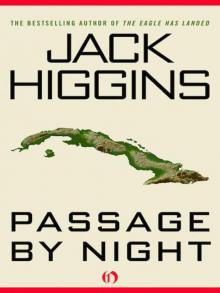 Passage by Night (v5)
Passage by Night (v5)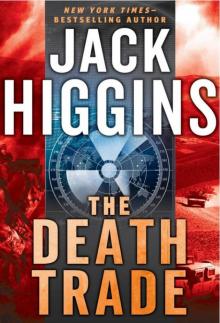 The Death Trade sd-20
The Death Trade sd-20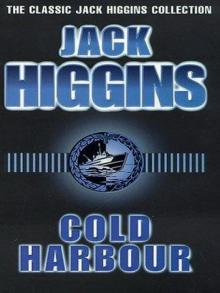 Cold Harbour
Cold Harbour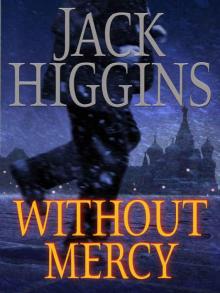 Without Mercy
Without Mercy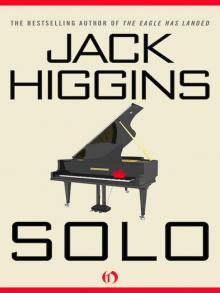 Solo (Aka the Cretan Lover)(1980)
Solo (Aka the Cretan Lover)(1980) First Strike
First Strike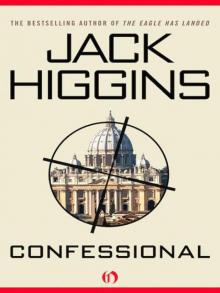 Confessional - Devlin 03 (v5)
Confessional - Devlin 03 (v5)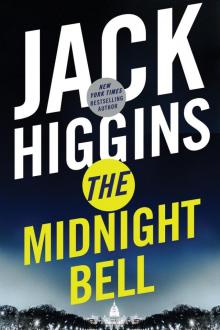 The Midnight Bell
The Midnight Bell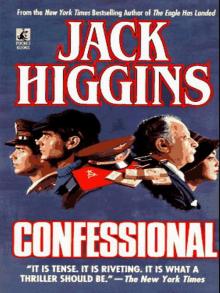 Confessional
Confessional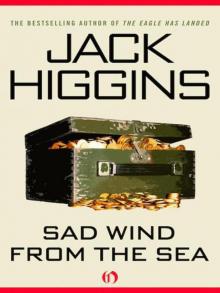 Sad Wind from the Sea (v5)
Sad Wind from the Sea (v5)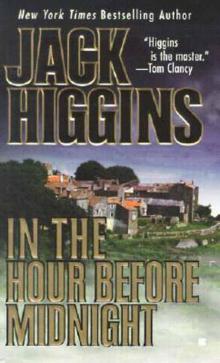 In The Hour Before Midnight aka The Sicilian Heritage
In The Hour Before Midnight aka The Sicilian Heritage Wrath of the Lion
Wrath of the Lion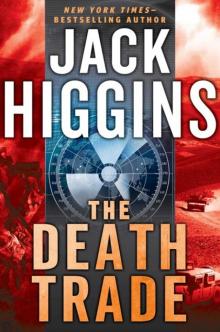 SDillon 20 - The Death Trade
SDillon 20 - The Death Trade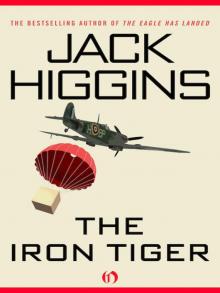 the Iron Tiger (1974)
the Iron Tiger (1974)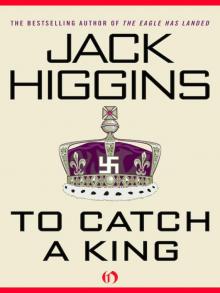 To Catch a King
To Catch a King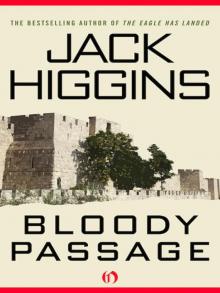 Bloody Passage (1999)
Bloody Passage (1999)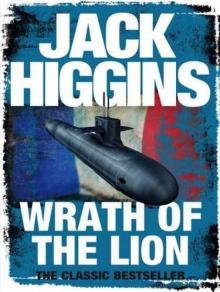 Wrath of the Lion sd-8
Wrath of the Lion sd-8 Sharp Shot
Sharp Shot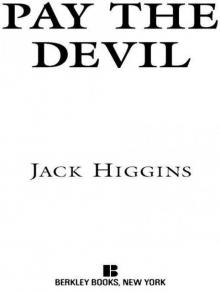 Pay the Devil (v5)
Pay the Devil (v5) A Devil Is Waiting
A Devil Is Waiting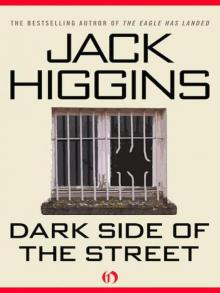 Dark Side of the Street - Simon Vaughn 01 (v5)
Dark Side of the Street - Simon Vaughn 01 (v5)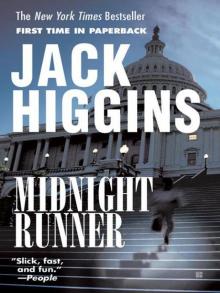 Midnight Runner - Sean Dillon 10
Midnight Runner - Sean Dillon 10 Wrath of God
Wrath of God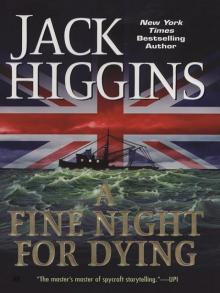 A Fine Night for Dying
A Fine Night for Dying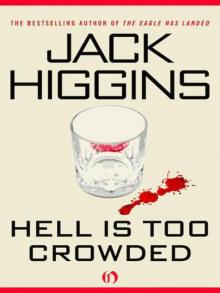 Hell Is Too Crowded v5)
Hell Is Too Crowded v5)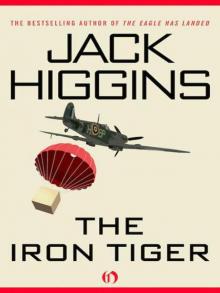 the Iron Tiger (v5)
the Iron Tiger (v5)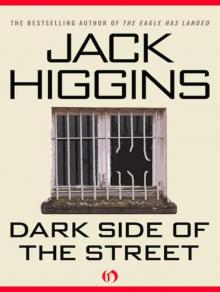 Dark Side of the Street pc-5
Dark Side of the Street pc-5 Hell Is Always Today
Hell Is Always Today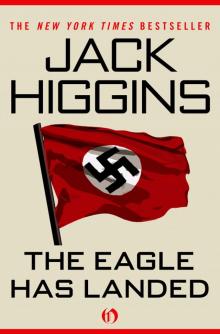 Eagle Has Landed
Eagle Has Landed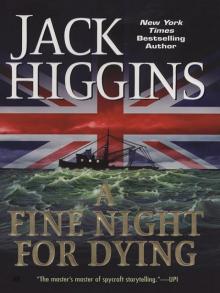 A Fine Night for Dying pc-6
A Fine Night for Dying pc-6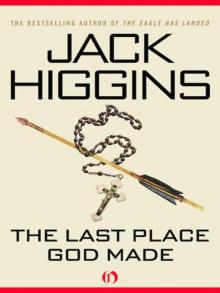 the Last Place God Made (v5)
the Last Place God Made (v5)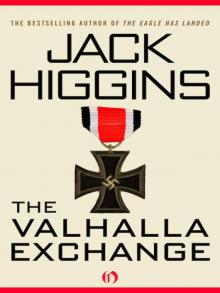 the Valhalla Exchange (1976)
the Valhalla Exchange (1976)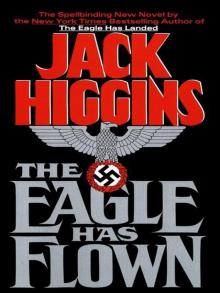 The Eagle Has Flown
The Eagle Has Flown Sure Fire
Sure Fire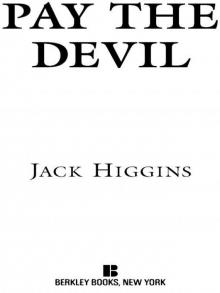 Pay the Devil (1999)
Pay the Devil (1999) Memoirs of a Dance Hall Romeo
Memoirs of a Dance Hall Romeo![a Prayer for the Dying (1974)[1] Read online](http://i1.bookreadfree.com/i1/04/02/a_prayer_for_the_dying_19741_preview.jpg) a Prayer for the Dying (1974)[1]
a Prayer for the Dying (1974)[1]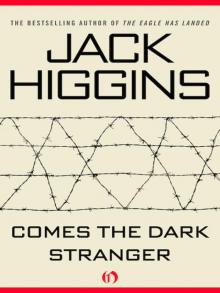 Comes the Dark Stranger
Comes the Dark Stranger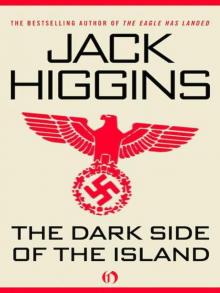 Dark Side Of the Island (v5)
Dark Side Of the Island (v5)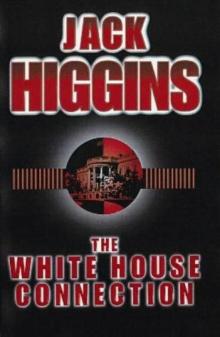 The White House Connection sd-7
The White House Connection sd-7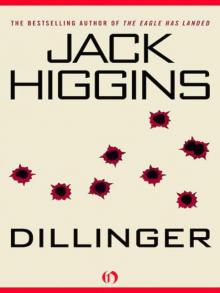 Dillinger (v5)
Dillinger (v5) Eye of the Storm
Eye of the Storm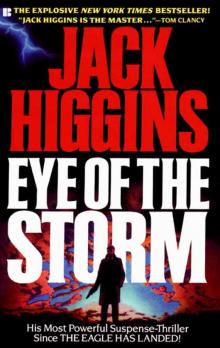 Eye Of The Storm aka Midnight Man
Eye Of The Storm aka Midnight Man A Darker Place
A Darker Place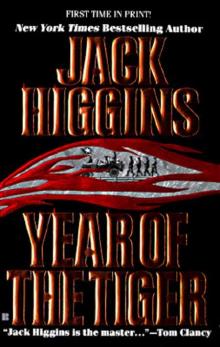 Year Of The Tiger
Year Of The Tiger Death Run
Death Run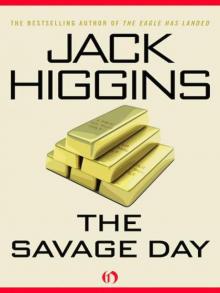 the Savage Day - Simon Vaughn 02 (v5)
the Savage Day - Simon Vaughn 02 (v5)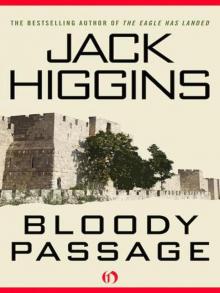 Bloody Passage (v5)
Bloody Passage (v5)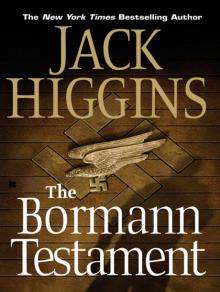 The Bormann Testament
The Bormann Testament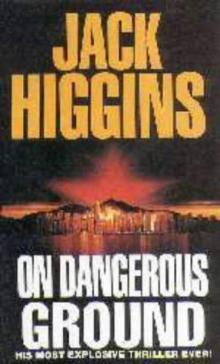 On dangerous ground sd-3
On dangerous ground sd-3 Dark Justice
Dark Justice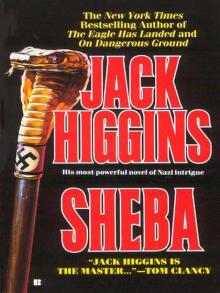 Sheba
Sheba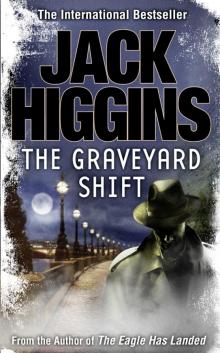 The Graveyard Shift
The Graveyard Shift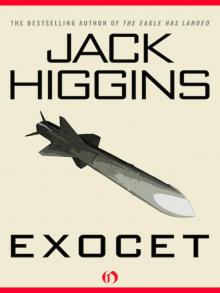 Exocet (1983)
Exocet (1983) The Wolf at the Door
The Wolf at the Door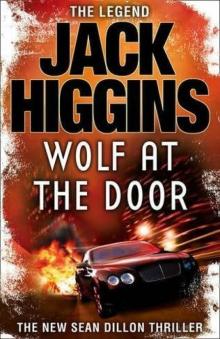 The wolf at the door sd-17
The wolf at the door sd-17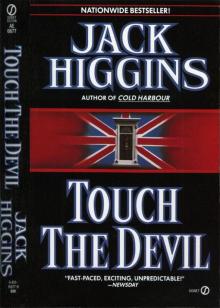 Touch The Devil
Touch The Devil The President’s Daughter
The President’s Daughter A Prayer for the Dying (v5)
A Prayer for the Dying (v5)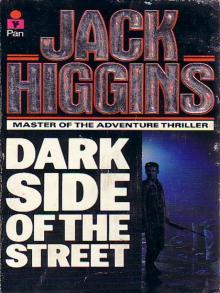 Dark Side Of The Street
Dark Side Of The Street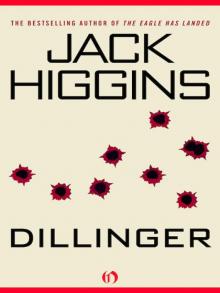 Dillinger (1983)
Dillinger (1983)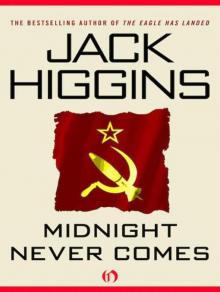 Midnight Never Comes pc-4
Midnight Never Comes pc-4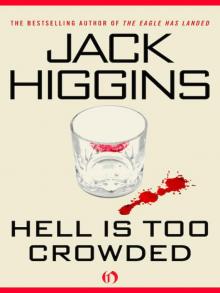 Hell Is Too Crowded (1991)
Hell Is Too Crowded (1991)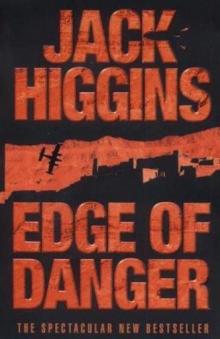 Edge of Danger sd-9
Edge of Danger sd-9 The Thousand Faces of Night (v5)
The Thousand Faces of Night (v5)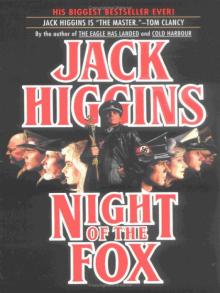 Night Of The Fox
Night Of The Fox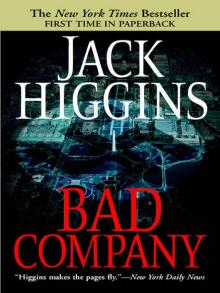 Bad Company
Bad Company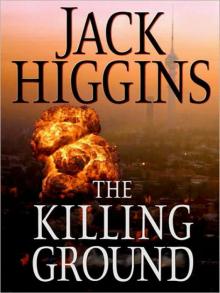 The Killing Ground
The Killing Ground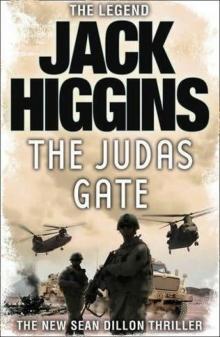 The Judas gate sd-18
The Judas gate sd-18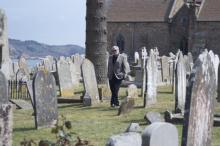 The Thousand Faces of Night (1961)
The Thousand Faces of Night (1961)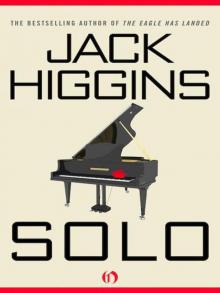 Solo (Aka the Cretan Lover) (v5)
Solo (Aka the Cretan Lover) (v5)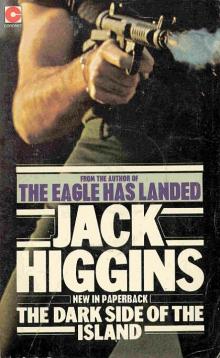 The Dark Side Of The Island
The Dark Side Of The Island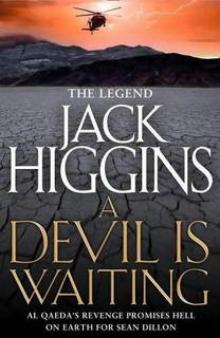 A Devil is vaiting sd-19
A Devil is vaiting sd-19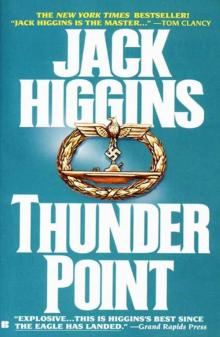 Thunder Point
Thunder Point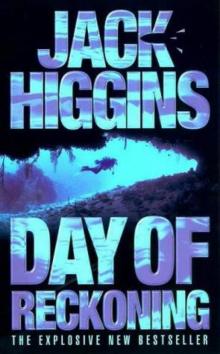 Day of Reckoning sd-8
Day of Reckoning sd-8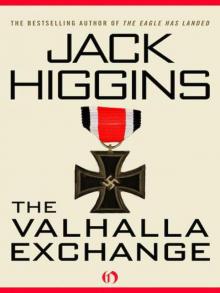 the Valhalla Exchange (v5)
the Valhalla Exchange (v5)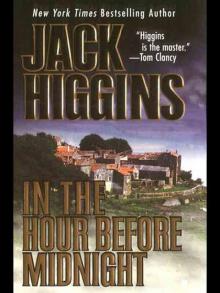 In the Hour Before Midnight
In the Hour Before Midnight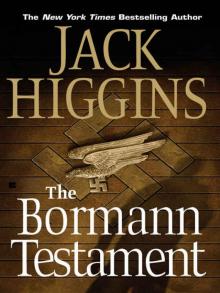 The Bormann Testament (The Testament of Caspar Schultz)
The Bormann Testament (The Testament of Caspar Schultz) The Judas Gate
The Judas Gate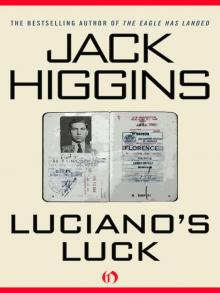 Luciano's Luck
Luciano's Luck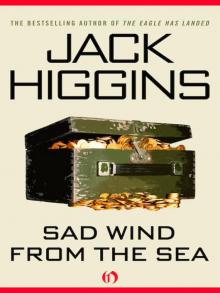 Sad Wind from the Sea (1959)
Sad Wind from the Sea (1959)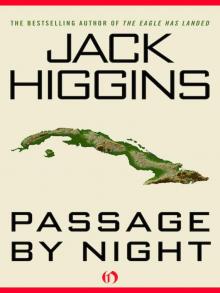 Passage by Night (1987)
Passage by Night (1987)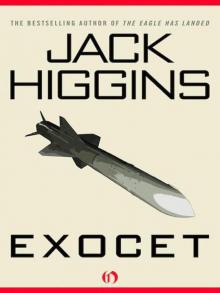 Exocet (v5)
Exocet (v5)